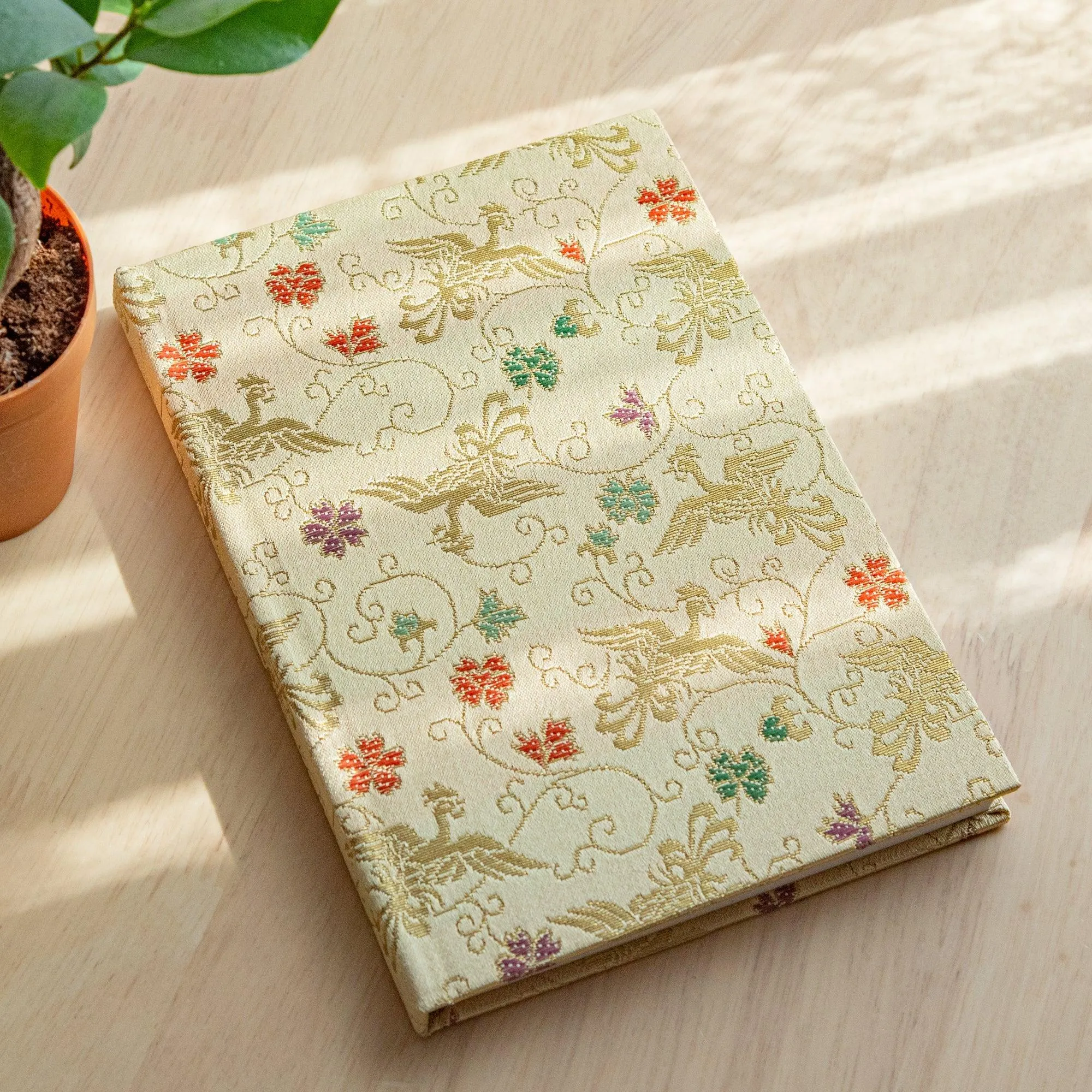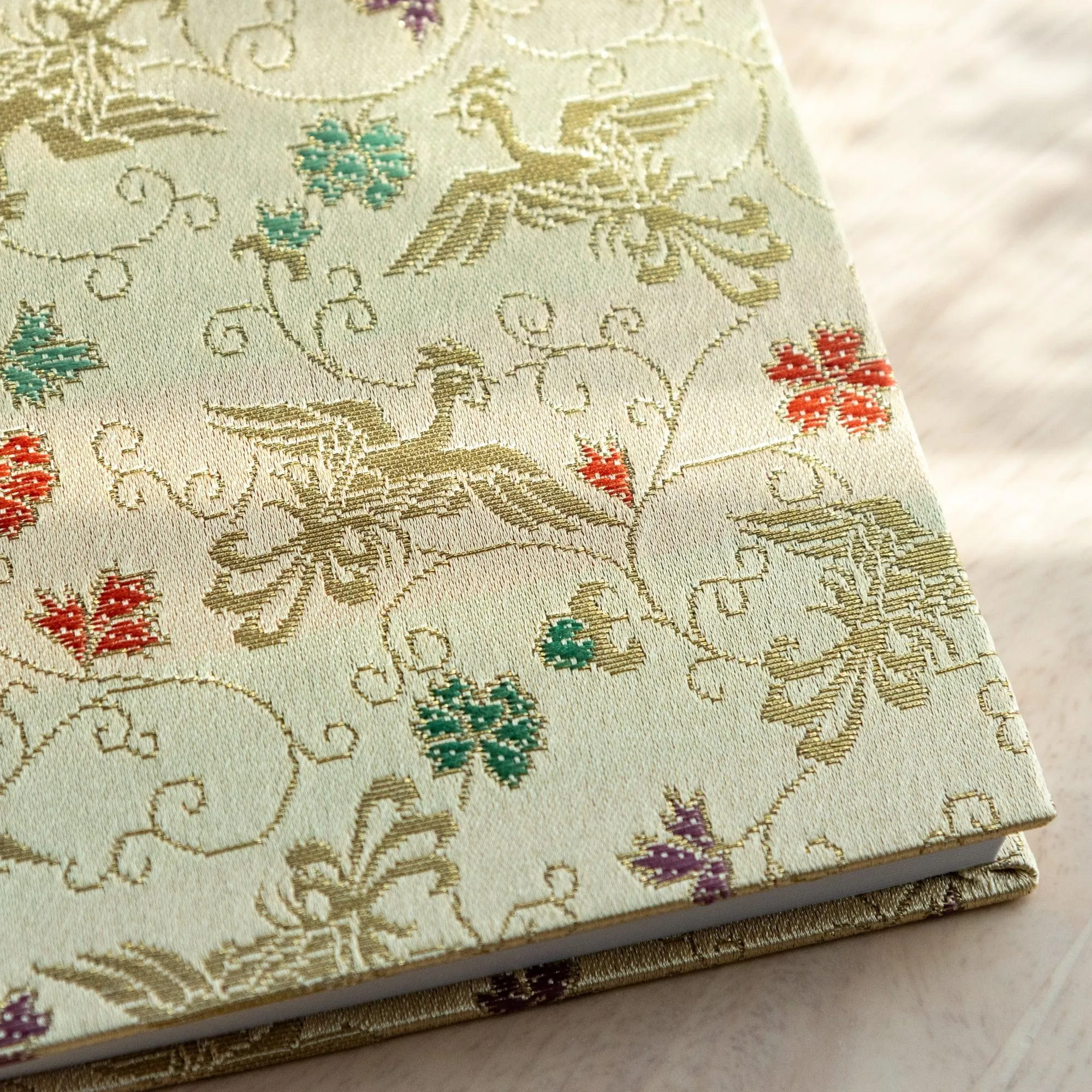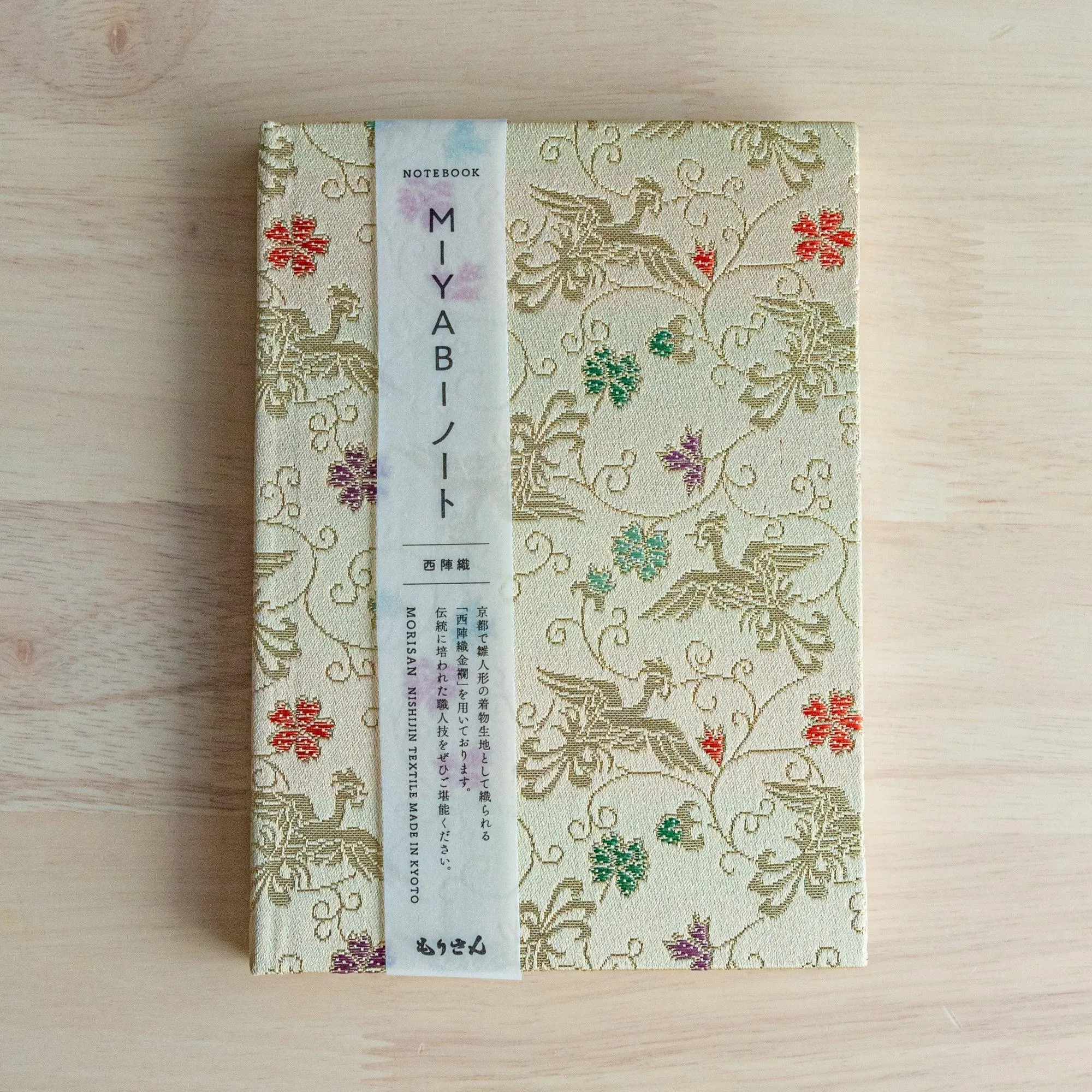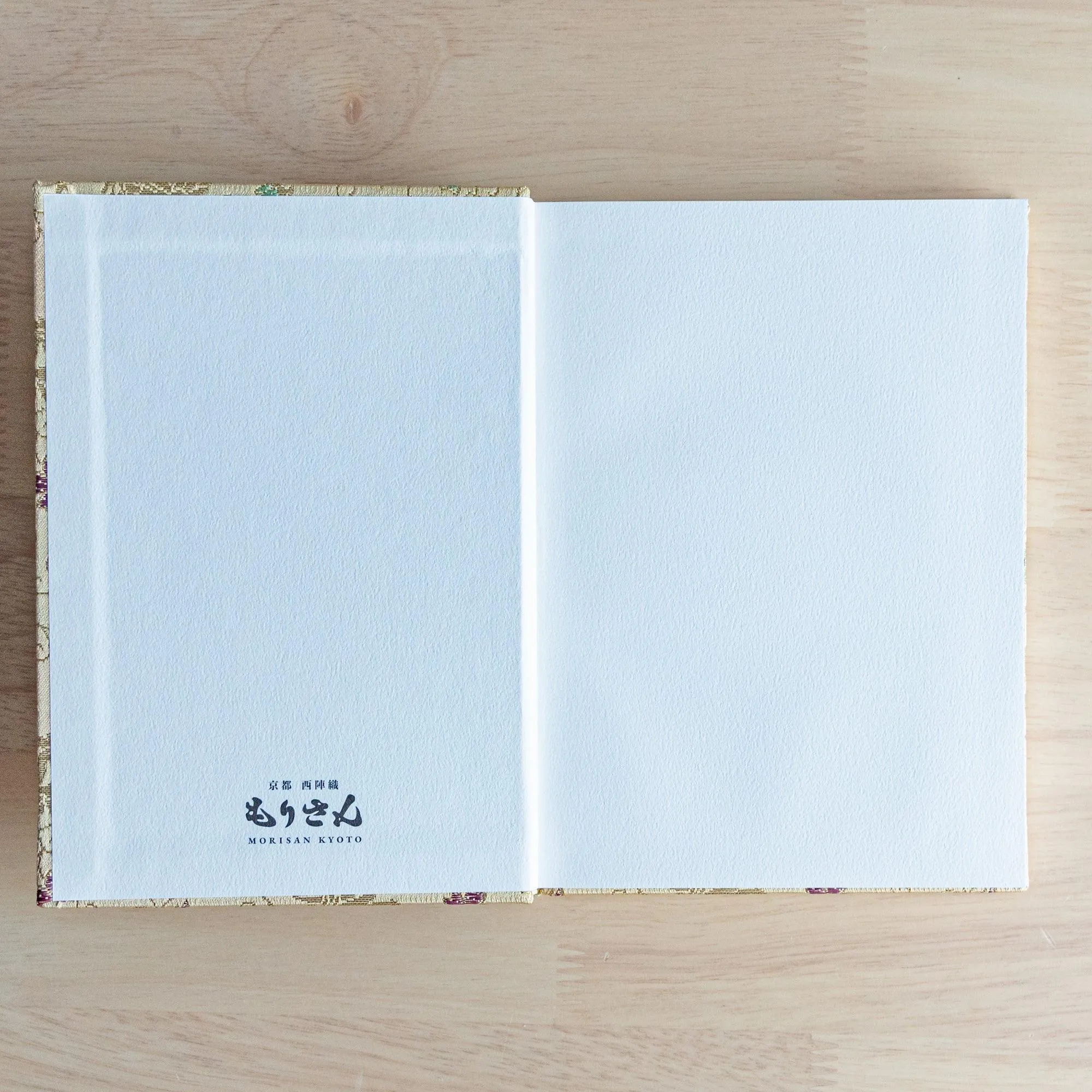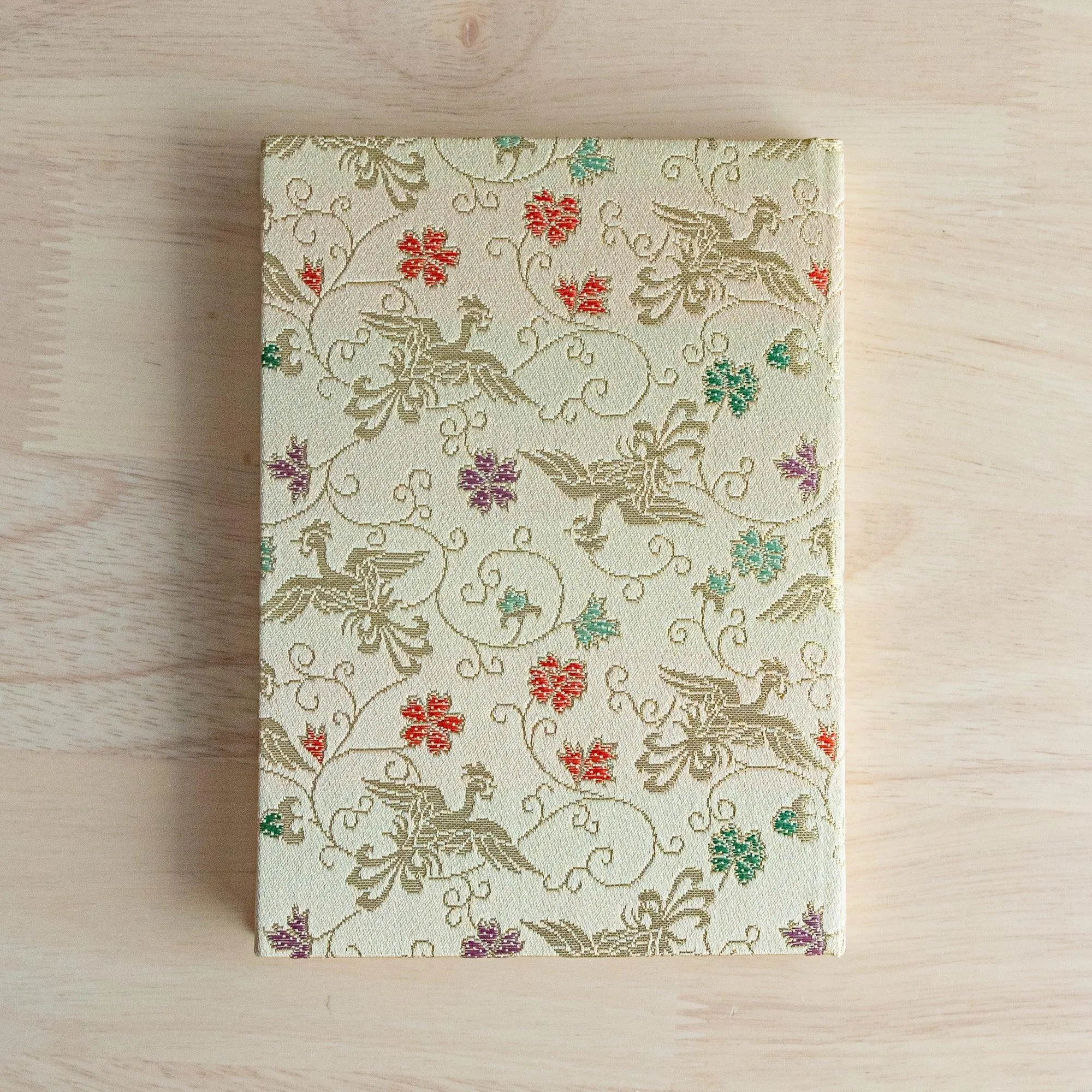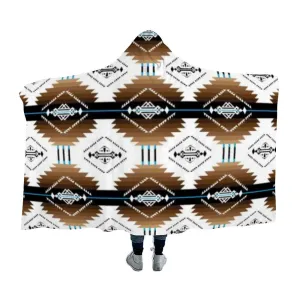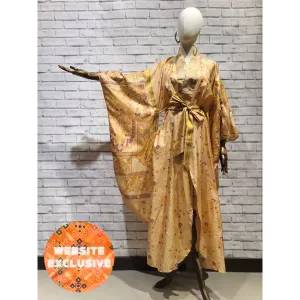This Japanese notebook features a golden cover, upon which a beautifully radiant phoenix, catching the light, is depicted. It is one of the most ornate designs in the Nishijin textile notebook series. Around the phoenix, the Karakusa(arabesque) pattern, which symbolizes longevity and prosperity in Japan, is also drawn in gold, enhancing the beauty of the phoenix.
Nishijin textile, renowned for its diverse yet limited production, originates from the historic Nishijin district in Kyoto and boasts a heritage of over a thousand years. The crafting process starts with meticulously dyeing each white thread in the colors needed for the fabric. Once dyed, the threads are carefully wound to facilitate weaving, ensuring they are intricately woven into designs that epitomize traditional Japanese artistry.
Morisan, a company that manufactures notebooks, has made Nishijin textile more accessible and affordable by producing it with polyester instead of the traditional silk. Notebooks made from Nishijin textile, which has a history of over a thousand years in Kyoto, are highly recommended for recording your daily events, making them ideal for diaries or bullet journals as they preserve your personal history.
Details
- Brand: Morisan
- Quantity: 1 Notebook
- Size: B6 - 5.0×7.1inches / 12.8×18.2cm
- Sheet Type: Dot Grid
- Weight: 255g
- Material: Nishijin Textile(polyester) / Paper
- Note: Please note that the cover design of each notebook may vary slightly, as it depends on the specific section of the Nishijin textile fabric that is used.
Morisan: Preserving Nishijin Brocade 'Kinran'
"Bringing Nishijin Brocade Closer to Everyday Life"
In Japan, if you speak of tradition and history, Kyoto often comes to mind as the former capital and a hub of cultural heritage. Since 1921, Morisan has been a steadfast purveyor of Kyoto’s traditional craft, Nishijin textile. Among their offerings, Morisan specializes in an exquisite form of Nishijin brocade known as 'kinran.' This luxurious fabric incorporates gold threads made by applying gold leaf to washi paper, slicing it into hair-thin strips, and wrapping these around threads, which are then intricately woven to create stunning patterns.
Traditionally, kinran was used in garments such as Buddhist monks' robes and costumes for Japanese dolls, but the demand for such items has diminished over time. However, Morisan has embraced a mission to integrate Nishijin brocade into contemporary life, making it more accessible and enjoyable. By substituting silk with polyester to maintain affordability, and crafting a range of everyday items from notebooks to bags, Morisan is making this opulent fabric a part of modern living.
We invite people around the world to enjoy Morisan's notebooks, which embody the tradition of Kyoto's Nishijin textile artisans—a tradition that Morisan has proudly sustained for over a century.




